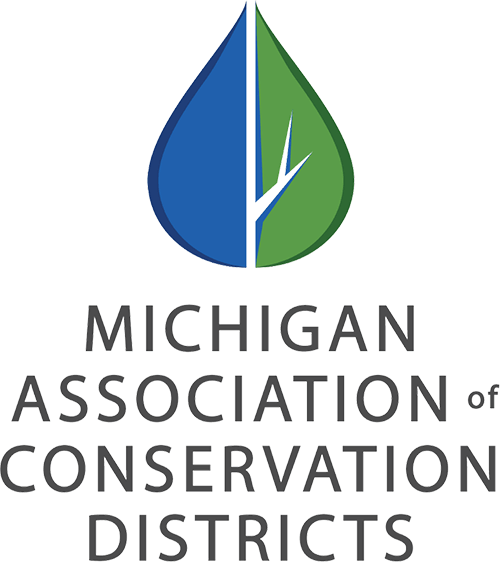Honoring Indigenous Peoples’ Day: Strengthening Our Shared Stewardship in Michigan
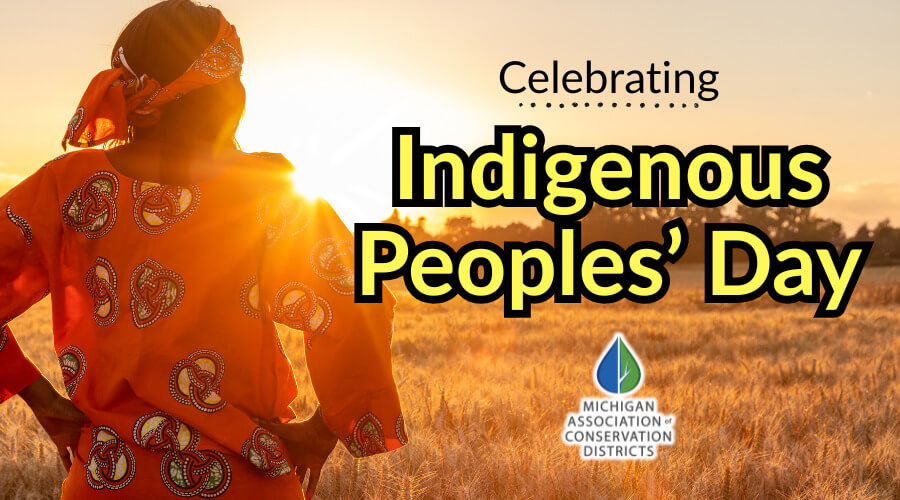
On Indigenous Peoples’ Day, we recognize and celebrate the first stewards of this land—the Indigenous nations whose knowledge, relationships, and care for the earth continue to shape Michigan’s landscapes. It is a day to honor their ongoing leadership in conservation, acknowledge the harms of exclusion and displacement, and commit to a shared future of collaboration and respect.
Indigenous Knowledge: Conservation’s First Roots
Long before the word “conservation” was coined, Indigenous peoples across the Americas cultivated sustainable relationships with their environments. From fire management to seasonal planting and harvesting, Indigenous stewardship embodies generations of ecological insight and balance.
As the Smithsonian’s Infinity of Nations exhibition reminds us, these practices were not only scientific but deeply spiritual. Practices that were rooted in reciprocity and respect for all living things. Today, as conservation professionals, we have much to learn from this worldview and its holistic approach to caring for land, water, and community.
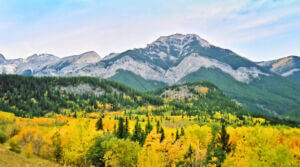
History of Indigenous Stewardship in Michigan
Michigan’s lands and waters are home to 12 federally recognized Tribal Nations and many Indigenous people whose ancestral territories span the Great Lakes. From the restoration of wild rice (manoomin) beds to the protection of sacred shorelines, Indigenous communities continue to lead the way in ecological restoration.
Groups like those highlighted in Great Lakes Now’s report are working to preserve manoomin, a keystone species for both biodiversity and culture. Similarly, the MSU Extension story “Tribal Stewards: From Wasteland to Wetland” showcases the power of restoring wetlands through Indigenous knowledge and leadership.
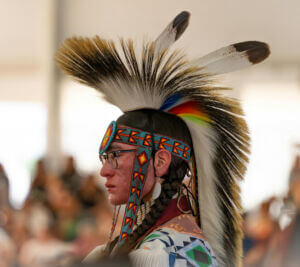
Conservation Districts: Building Bridges for Collaboration
Michigan’s Conservation Districts are deeply rooted in local communities, working alongside landowners, farmers, and partners to protect soil, water, and wildlife. Increasingly, Conservation Districts are recognizing the importance of building stronger, more equitable relationships with Indigenous nations.
Across the state, districts are:
- Incorporating outreach to local Tribal governments.
- Partnering on habitat restoration and invasive species management projects.
- Supporting traditional ecological knowledge as a guiding framework for conservation planning.
- Creating space for dialogue, learning, and shared leadership.
These efforts are just the beginning of a broader shift, one that moves beyond acknowledgment to active collaboration and shared stewardship.
For example, the Manistee and Mason-Lake Conservation Districts recently co-hosted a nature walk at The Barn at Shagway, celebrating both the land’s ecological richness and its deep Indigenous history. The site’s namesake, Henry Shagway, was a member of the Ottawa Tribe. Event participants got to explore local flora and fauna while acknowledging the cultural and historical context of the land. Programs like these show how Conservation Districts can foster community education and understanding while honoring the enduring relationships Indigenous peoples have with Michigan’s landscapes.
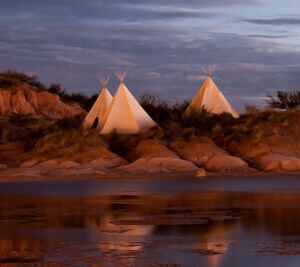
Another recent example comes from the Emmet Conservation District, which hosted guest speaker Dr. Kurt Kipfmueller, Morse Alumni Distinguished Professor of Geography, Environment, and Society at the University of Minnesota–Twin Cities. His presentation, “Using the Stories Contained in Tree Rings to Better Understand Forest Patterns to Guide Forest Stewardship in Northern Michigan and the Great Lakes,” explored how tree-ring science can reveal the ecological history of Michigan’s forests. Dr. Kipfmueller highlighted ongoing research into the role of fire, and particularly Indigenous fire stewardship. This process is shaping the forests of the Waganakising area in northwest Lower Michigan.
Recognizing Indigenous Partnerships at the MACD Annual Conference
MACD takes our state-wide role seriously, as we work to provide additional training and support to Districts. We are honored to share that Dr. Thi Mai Anh Tran will be a featured speaker at the upcoming MACD Annual Conference, presenting on Indigenous work and knowledge systems in Michigan.
Dr. Tran is a forest scientist and environmental communicator whose research bridges Indigenous knowledge and Western science to build climate-resilient ecosystems. Her work with the Keweenaw Bay Indian Community explores how traditional stewardship and modern forestry can come together to sustain both ecological and community health.
Her session will invite us to reflect on how districts and Tribal partners can work hand-in-hand to protect forests, water, and future generations.
Learn more about Dr. Tran’s work: Thi Mai Anh Tran – PhilPeople Profile
We will also have Erin Horton, from Missaukee Conservation District, sharing a hands-on session about using traditional indigenous medicinal uses for common Michigan native plant species to enhance enthusiasm for native plants.
Looking Forward: A Shared Future of Hope and Partnership
As we celebrate Indigenous Peoples’ Day, let us do more than look back and also look forward. The future of conservation in Michigan depends on relationships built on mutual respect, learning, and trust.
Imagine a Michigan where:
- Conservation projects are co-designed with Tribal partners.
- Indigenous youth are supported in pursuing conservation careers.
- Restoration plans honor both ecological science and cultural knowledge.
- Every Conservation District has a working partnership with the Tribal Nations in their region.
MACD is committed to continuing to do the work to build partnerships, bridge differences, and advocate for local leadership to adopt a culture of partnership and co-stewardship of our important Michigan natural resources.
